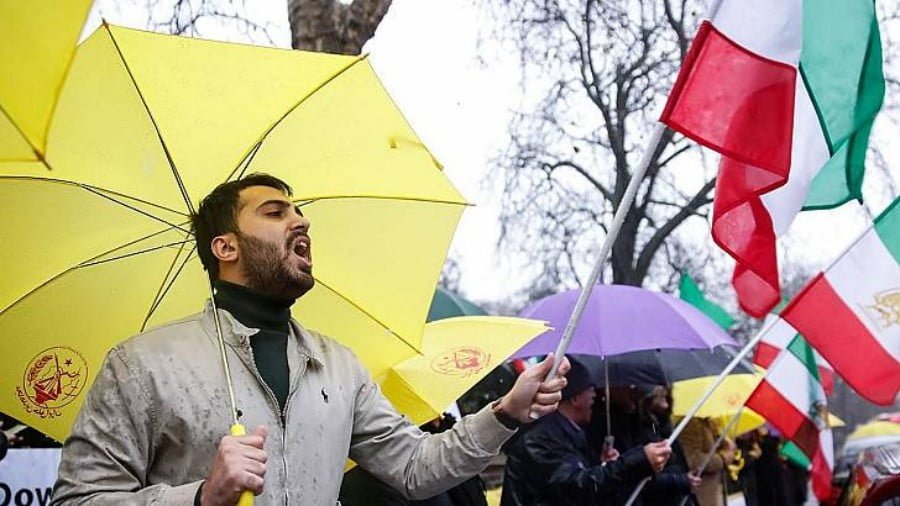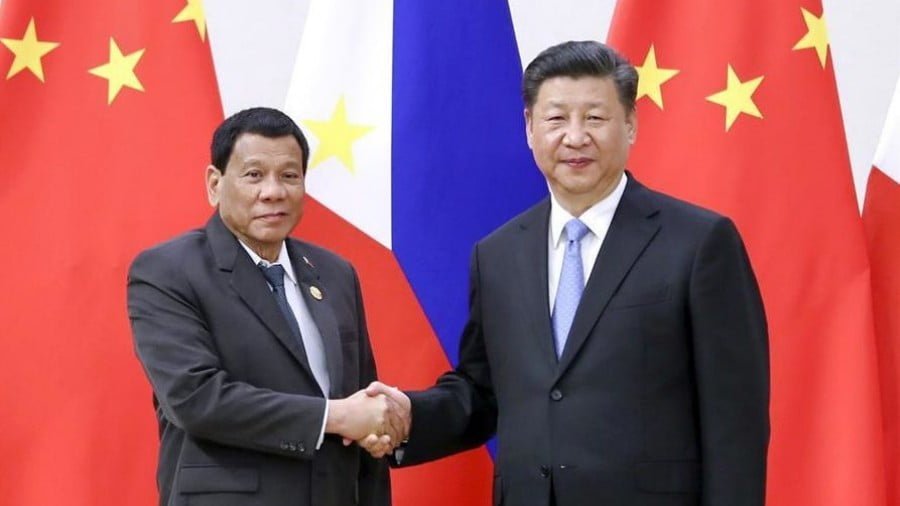Trump Impressed by China – China Underwhelmed by Trump
Donald Trump has gone to China amid what is being called a “state visit +”. All of the trappings of a grand welcome have been on display and like just about everything in modern China, it has gone off without a hitch. By contrast, Barack Obama’s last Presidential visit to China became emblematic for a very unwelcoming display where Obama was forced to exit his plane via a door by the tail while other world leaders at the same summit, including Russian President Vladimir Putin, received the full red carpet treatment.
Trump’s visit could not be more different from Obama’s last one and the US President’s social media accounts are predictably filled with photo ops of the US First Lady and a generally stoic looking President Xi Jinping.
When it came down to business, trade agreements worth $253.4 billion were signed between the two countries, in an obvious sign that while Donald Trump may be the master of bold rhetoric, it is China that has mastered the art of the deal with just about every nation on earth.
In respect of Trump’s rhetoric, there was nothing new. Everything Trump said while next to Xi was the kind of rhetoric heard during Trump’s long campaign as well as during Presidential speeches in the US.
The main thrust of the rhetoric is that the US has suffered a trade imbalance with China and others due to poor US leadership and China’s leaders are intelligent for exploiting the weakness of everyone in the US who is not Donald Trump.
Trump even managed to produce awkward laughter from his Chinese hosts when he said the following about China’s allegedly “one sided” trade deals with the US
“But I don’t blame China. After all, who can blame a country for being able to take advantage of another country for the benefit of its citizens? I give China great credit”.
Trump also stated,
“The United States really has to change its policies because they’ve gotten so far behind on trade with China and frankly with other countries. And I have great respect for you for that because you are representing China. But it’s too bad that past administrations allowed it to get so far out of kilter”.
In other words, Donald Trump essentially read a Ross Perot campaign speech from 1992 in the heart of China in 2017, a country whose economic engine is unstoppable at this point. In this sense, Trump’s lighthearted expressions of condemnation of past US leaders was something of an admission of Chinese strength, albeit a patronising one which underplays the fact that China’s incredible advances over the last 40 years have been made in spite of the strength or weakness or other major powers, including the United States.
Donald Trump’s relationship to President Xi Jinping has been one filled with accidental insults from the get-go. During his first meeting with Xi, Trump told the Chinese leader that Beijing’s ally Syria had been bombed by the United States over what Trump described as a “big beautiful piece of chocolate cake” which according to Trump, Xi enjoyed.
By Chinese standards, this was far too casual a way to convey a message that was received negatively in China, a country that like Russia and Iran, supports the legitimate government of Syria.
Things only got worse as Trump continued to Tweet about North Korea as though it was a uniquely Chinese responsibility, thus enforcing a much hated narrative in China, that somehow Pyongyang is a Chinese client state, when in reality relations between the DPRK and PRC have plunged to all time lows during the Kim Jung-un/Xi Jinping years. In reality the USSR had better relations with North Korea than China ever had and more recently, Russia is willing to hear-out Kim Jong-un’s side of the story, while China has grown as irritating by Kim as by the US military-industrial complex for its meddling in the South China Sea, India and the Korean peninsula.
A further giant blunder came after the G20 summit in July of 2017, when an official press release from the White House referred to Xi Jinping as the “President of the Republic of China” the official name for Chinese Taipei, which is often referred to as Taiwan.
Trump however, has always expressed his personal fondness for Xi in a uniquely exuberant American style. These expressions have been met with professional diplomatic language that is as uniquely Chinese as Trump’s attitude is American. It should however be noted, that Obama’s cosmopolitanism and often robotic language failed to impress the Chinese too.
During his brief statement with Xi, Trump stated,
“I think we are going to do tremendous things for both China and for the United States… I’m looking forward to many years of friendship and working together to solve not only our problems but world problems and problems of great danger and security”.
Xi responded by emphasising his “win-win” strategy saying that, “For China and the United States, cooperation is the only right choice”.
While Trump and Xi probably both left feeling like winners of sorts, the only real winner in the Sino-US relationship is China. While China’s industrial might is usually invoked to make such arguments, the truth is that China is diversifying its economy in a number of ways, including embracing global monetary policy making with Chinese characteristics, rapidly expanding its vast internal market and most importantly building the One Belt–One Road trading, commerce and global infrastructure network.
One Belt–One Road (OBOR) remains China’s superhighway to the future in a multitude of ways, while the US remains intent of ignoring OBOR in public, all the while attempting to sabotage OBOR with proxy conflicts and long-term de-stabilisation policies along key points on OBOR.
Ultimately though, the US strategy of “lead from behind” in global conflicts designed to upset the progress of OBOR is a strategy symptomatic of the US falling behind.
As China along with Russia consolidates leadership over future multi-lateral trading initiatives, de-Dollarisation programmes and new technological developments in the energy, military and retail sectors, the US is going to have a great deal to do internally, if it really seeks to make itself great again. Antagonising China is simply a means of the US delaying its ultimate fall from the position of the world’s number one economy. In many ways, Donald Trump has already acknowledged this failure and the supreme difficulty the US has if it wants to even reverse certain elements of this phenomenon.
As I previously wrote,
“The reason that One Belt–One Road frightens both western protectionists and western globalists, is because it offers a model that is superior to both. Like globalism, One Belt–One Road offers opportunities for economic enrichment and the enhancement of living standards through global trade and economic connectivity. But like protectionism and unlike western free trade globalism, One Belt–One Road is focused on each nation playing to its strengths and allowing these domestic strengths (whether tapped or fully untapped) to then, expand globally. While globalism seeks to offshore entire economies, One Belt–One Road’s model allows strong domestic industries to create new markets for themselves while effectively and cheaply supplying these economies with much needed materials and expertise that cannot be produced domestically. It’s not a coincidence that “win-win” is one of Xi Jinping’s favourite phrases.
Because of this, all countries, including the US could benefit from integrating themselves into One Belt–One Road. In this sense, it helps to think of the declining US as an economy with the potential for growth. But the US can only grow if it admits that the old model has failed and that it is high time to embrace a new one, one which will create more domestic jobs, more domestic wealth and more global peace.
The US could avoid the protectionism that would cut off much required Asian materials and finished goods from the US economy, while also avoiding the prolonged offshoring of the US industrial base if it spoke with China about joining One Belt–One Road and expanding it westward, rather than positioning itself as an adversary.
The US, like all of China’s other partners could agree on which sectors could produce things that other countries along One Belt–One Road require, while also agreeing to import the things that the US requires from China’s One Belt–One Road partners. In the words of Xi Jingping, this would be a ‘win-win’ model.
China has been able to develop a largely self-sufficient industrial economy while also trading openly with the world on just this model. When one trades globally, yet preserves important sectors nationally, based on pragmatic geo-industrial realities, one can in fact both be open to the world and independent at home.
While many might maintain that the infamous “1%” in the United States who have enriched themselves through financial speculation and investments in the military-industrial complex, will be reticent to embrace this change, such a reticence will be at the “1%’s” own peril in the long term, in addition to the peril of working and middle class Americans (the 99%).
In this sense, it is not only greed that might ultimately force America into a position of continued hostility towards China and her partners like Russia, but moreover, it represents a a short sighted stupidity. There is plenty of money to be made in the United States, were American businesses to embrace One Belt–One Road. Even Alibaba founder Jack Ma has told American audiences that it isn’t China that has created US debt, unemployment and declining living standards, but instead, that it is America’s wars which are doing so. All of the money spent on war, could be money spent on peace and yes, peace is big business, just ask any Chinese businessman.
There is little doubt among the wider global consensus that the US is currently the biggest obstacle to world peace. The reason for this is that the US continues to cling onto an imperial model of world trade. If the US adopted the Chinese model and made it work for American businesses and American workers, they would find that not only could they make a lot of money, but that China would become far more flexible when approached through the language of opportunity rather than that of suspicion and aggression. This is true of any country. Even today, fewer and fewer countries are standing up to US neo-imperial bullying, Syria, Iran, Venezuela and the DPRK are merely the most vocal examples.
The only other alternative is for the US to cling on to a model that has objectively failed. It is a failed model that if taken to its logical extreme, would mean more war and little else. This would be a ‘lose-lose’ situation for the entire planet.
With countries throughout the world buying more Russian and Chinese weapons and increasing their ability to resist would-be US military aggression, even when accounting for its military strength, the US will find itself increasingly disabled in respect of turning its hegemonic attitude into meaningful economic results.
Why would the US want to make itself poorer and the world less peaceful when a ready-made alternative is available which could make the world safer and all participating nations richer? When one considers the words, stupidity, insanity and irrationality, one might find an answer to such a question”.
Until Donald Trump and others can acknowledge this new reality, the US will be stuck with old methods that have already outlived their viability.
By Adam Garrie
Source: The Duran







